Enhancing observation skills Easy Worksheets for Ages 5-9
6 filtered results
-
From - To
Enhancing observation skills is essential for young learners, and our Easy Worksheets for Ages 5-9 provide engaging activities designed to boost these critical abilities. With colorful illustrations and accessible content, these worksheets encourage children to carefully observe details, compare images, and identify differences. Tailored for early grade students, these resources foster concentration and analytical thinking while making learning enjoyable. Perfect for home or classroom use, the worksheets support a fun, hands-on approach to skill development. Explore our collection today to help your child sharpen their observation skills and gain confidence in their learning journey!
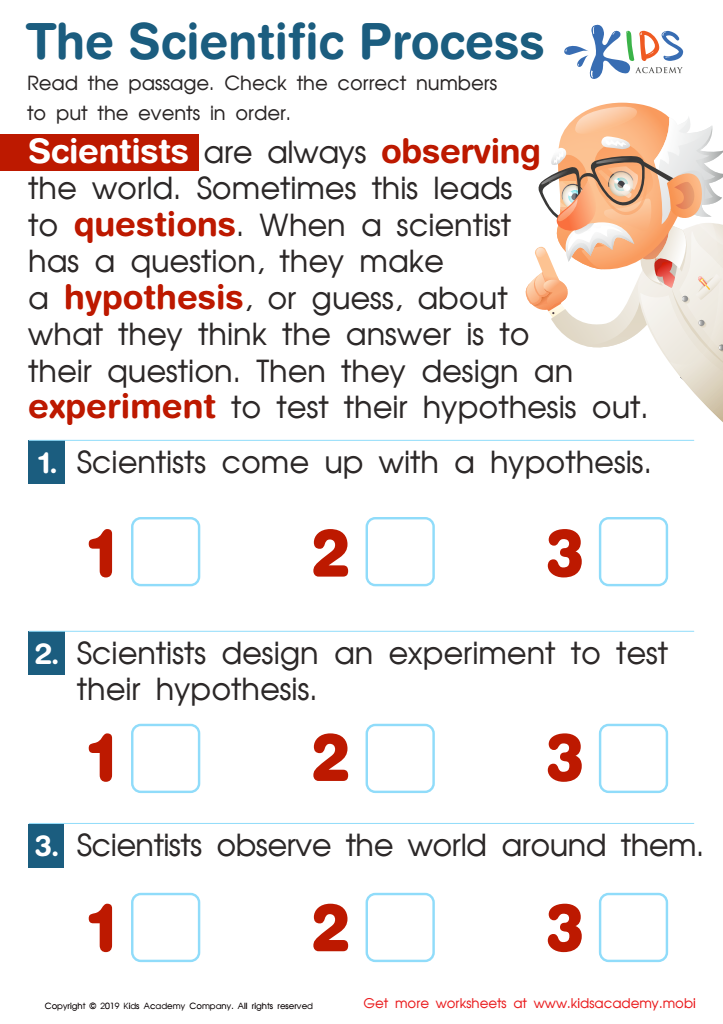

The Scientific Process Worksheet
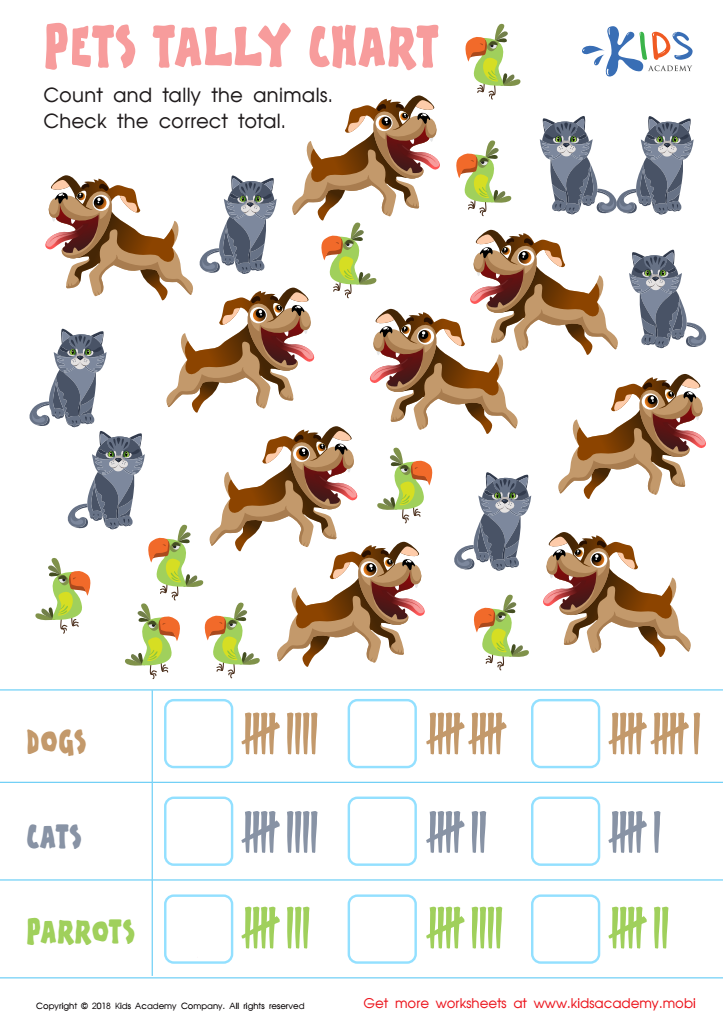

Pets Tally Chart Worksheet
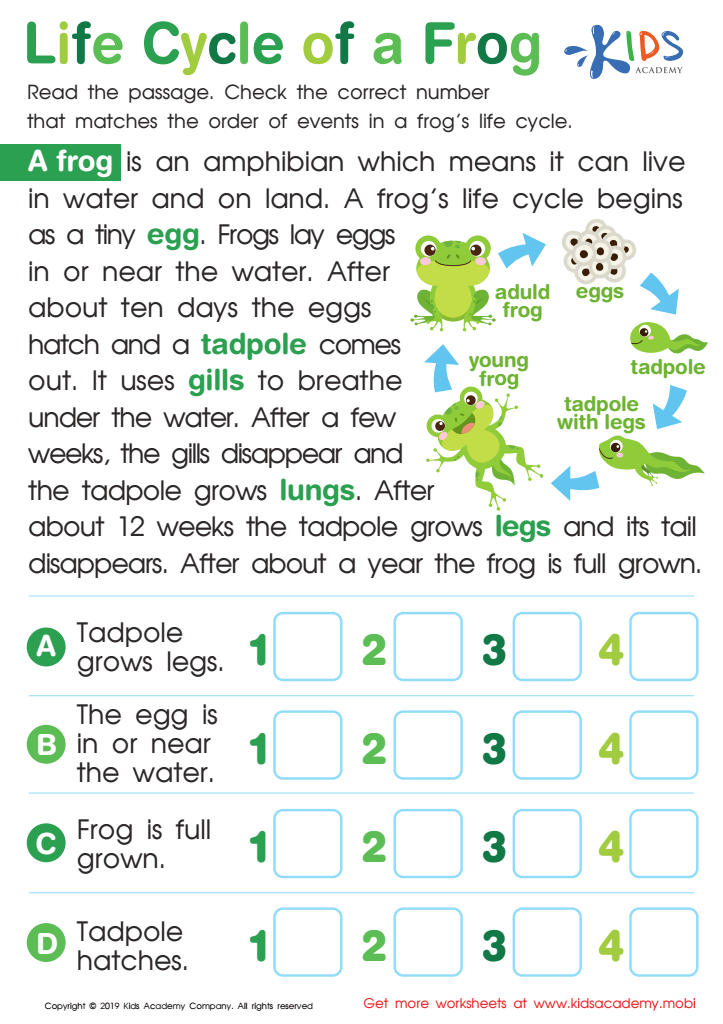

Life Cycle of a Frog Worksheet
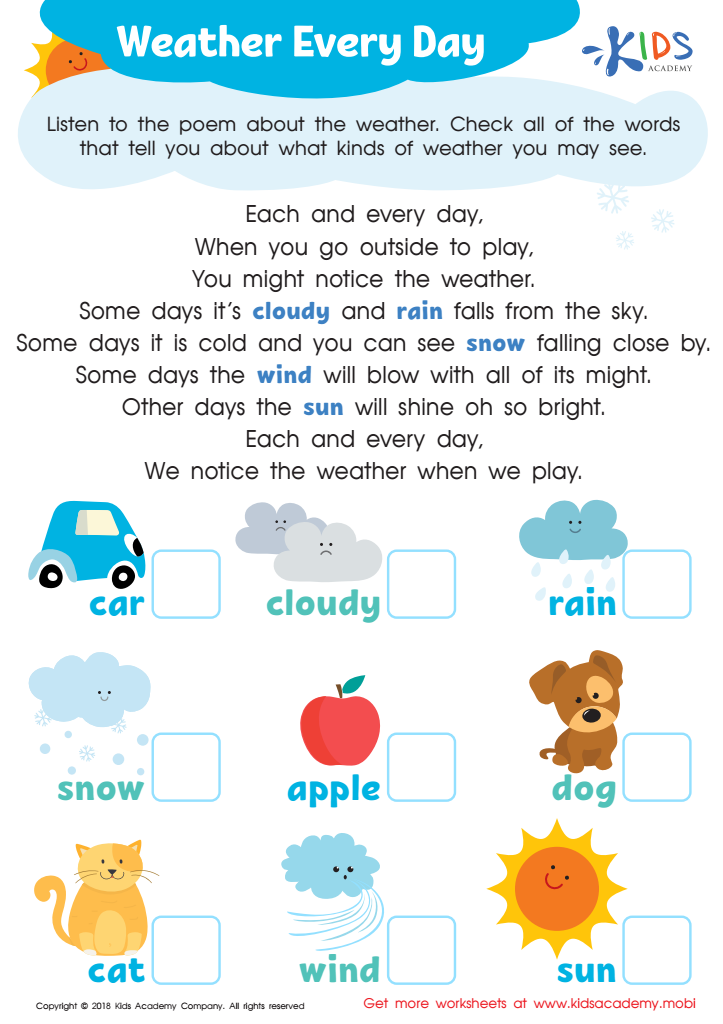

Weather Every Day Worksheet
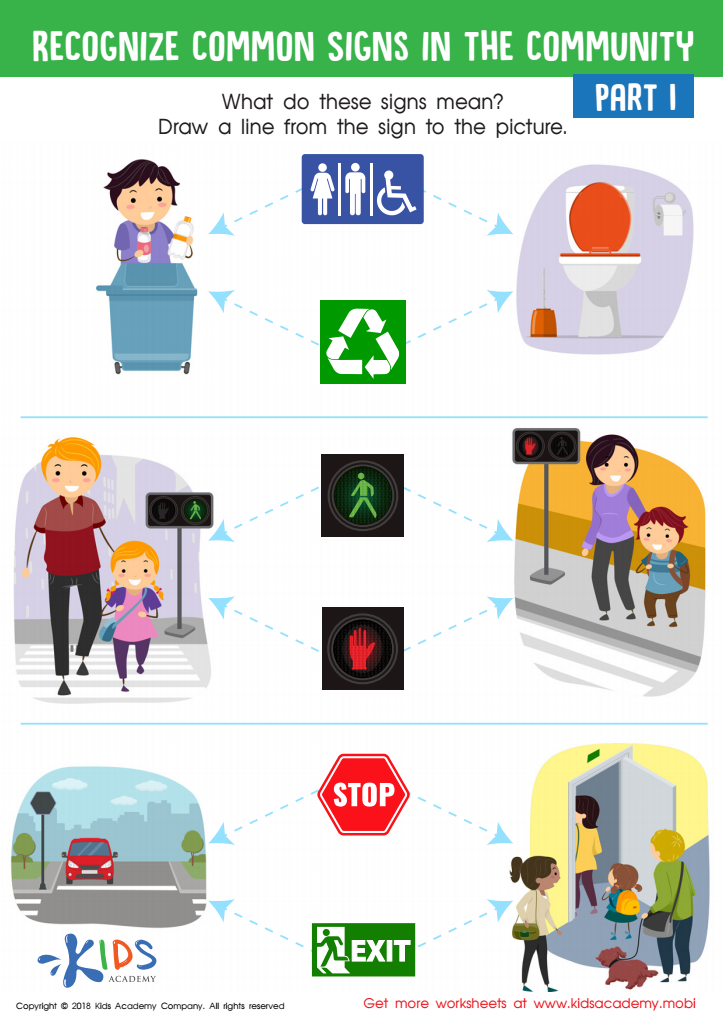

Recognize Common Signs: Part 1 Worksheet
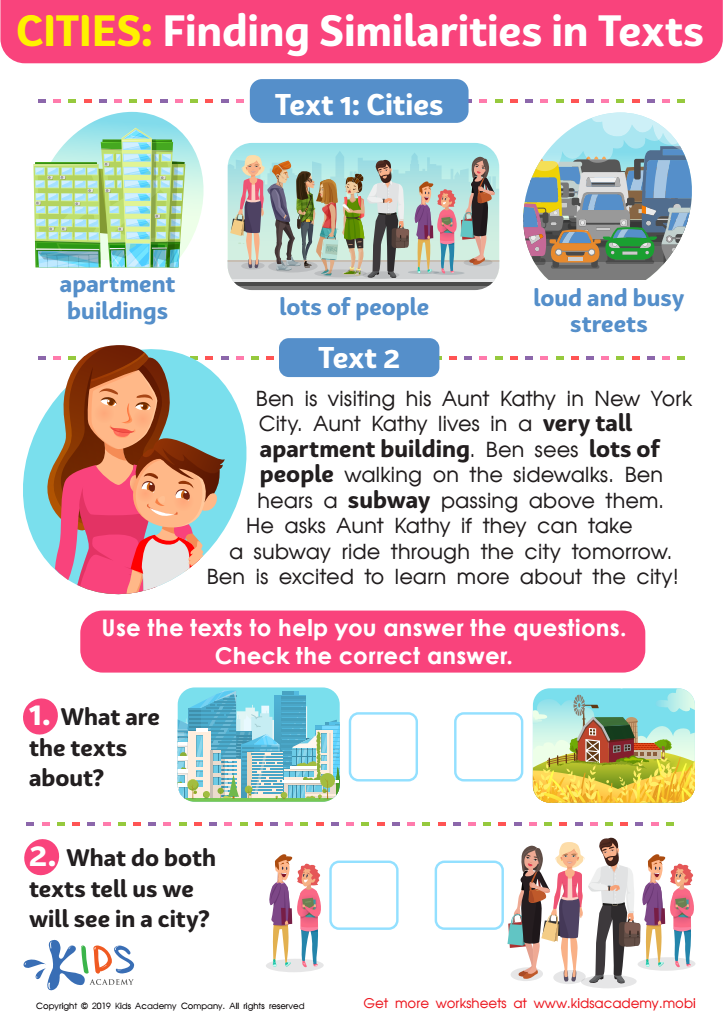

Cities: Finding Similarities Worksheet
Enhancing observation skills in children aged 5-9 is crucial for their overall development. These skills serve as the foundation for critical thinking, creativity, and problem-solving, which are essential in everyday life and future learning. When parents and teachers prioritize observation, they empower children to become active participants in their learning journey.
Children with strong observation abilities can notice details, make connections between concepts, and develop a deeper understanding of their surroundings. This age is a critical period for cognitive development, and fostering these skills helps children become attentive and engaged learners.
Through guided activities—like nature walks, drawing, or simple games—children can practice these skills in practical, enjoyable ways. Such experiences not only boost academic readiness but also enhance social-emotional development, as kids learn to recognize non-verbal cues in others and become more empathetic.
Moreover, enhanced observation skills support literacy development; as children learn to visualize and interpret details in stories, they become better readers and communicators. Overall, investing in observation skills nurtures inquisitive, well-rounded individuals capable of thriving in school and beyond. Thus, encouraging observation is a worthy endeavor for both parents and educators.
 Assign to My Students
Assign to My Students
















